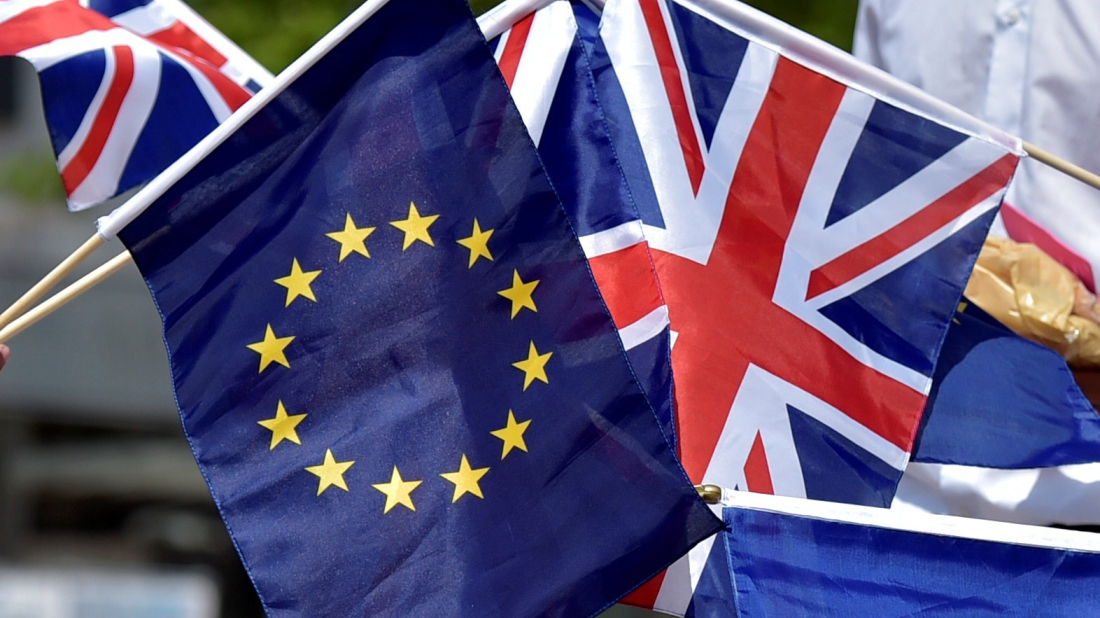At least 31 killed in Islamabad mosque explosion during Friday prayers
An attacker opened fire at the gates of a Shi'ite Muslim mosque in Islamabad on Friday before detonating a suicide bomb that killed at least 31 people...

On May 19, London and Brussels are set to kick off their first annual summit, prioritizing a new UK–EU defense and security pact even as negotiations continue with Washington over tariff relief on British steel, cars and aerospace components.
The United Kingdom and the European Union will hold their first annual summit on May 19 in London, with both sides expected to prioritize a new defence and security agreement aimed at deepening cooperation as U.S. commitments appear to be shifting under the Trump administration’s tariff policies. Prime Minister Keir Starmer, who took office last year vowing to reset post‑Brexit relations, has already hosted preliminary talks in early May to align strategies on Ukraine support and regional security, setting the stage for formalising intelligence sharing, joint procurement, and coordinated responses to emerging threats such as cyber‑attacks.
Analysts from Chatham House argue there is “a real case” for the UK and EU to jointly plan how they might backfill capabilities traditionally provided by the United States, with Olivia O’Sullivan describing such a pact as a logical build on Britain’s longstanding defence strengths. The Times European diplomats, however, stress that broader cooperation on economic and regulatory issues will hinge on resolving longstanding disputes over fisheries access and youth mobility rights for EU nationals in Britain.
Fishing rights remain the thorniest issue, with the UK proposing a four‑year deal—less than the seven‑year access sought by France and the Netherlands—which complicates linkage to veterinary and SPS agreements necessary for food trade. Brussels is pressing London to extend beyond its current one‑year, quota‑based youth mobility scheme to a multi‑year arrangement that includes tuition‑fee exemptions, a move that could provoke backlash from Brexit supporters concerned about immigration.
On the economic front, Starmer is negotiating a limited trade deal with the United States that would eliminate higher tariffs on steel and aluminum but leave a 10% duty on cars—terms EU trade ministers have criticized as falling short of Washington’s larger global trade ambitions. Reuters EU officials warn that any perception of the UK aligning too closely with Brussels could jeopardise ongoing U.S. negotiations and potentially trigger reciprocal tariffs on other British exports.
Despite these challenges, both sides recognize the strategic necessity of reinforcing NATO’s European pillar. A successful defence pact at the summit would signal renewed trust and pave the way for issue‑based coalitions on energy, migration, and counter‑terrorism, reflecting a pragmatic approach recommended by former French diplomats who caution against reverting to pre‑Brexit dependency.
The outcome of the summit will test Starmer’s ability to balance security gains with domestic political sensitivities, as unresolved fisheries and mobility disputes could reignite Brexit‑era tensions. Observers note that a clear “quick win” on defence could provide momentum for broader cooperation, but only if both sides demonstrate flexibility on the economic and social issues that remain the summit’s most divisive hurdles.
Iran’s Islamic Revolutionary Guard Corps (IRGC) has deployed one of its largest ballistic missiles at a newly unveiled underground base on Wednesday (3 February), just two days ahead of mediated nuclear talks with the United States in Muscat, Oman.
Winter weather has brought air travel in the German capital to a complete halt, stranding thousands of passengers as severe icing conditions make runways and aircraft unsafe for operation and force authorities to shut down one of Europe’s key transport hubs.
Storm Leonardo hit Spain and Portugal on Tuesday, forcing more than 11,000 people from their homes, after a man in Portugal died when his car was swept away by floodwaters and a second body was found in Malaga.
An attacker opened fire at the gates of a Shi'ite Muslim mosque in Islamabad on Friday before detonating a suicide bomb that killed at least 31 people in the deadliest assault of its kind in the capital in more than ten years.
Ukraine and Russia carried out a rare exchange of 314 prisoners on Thursday as U.S.-brokered talks in Abu Dhabi closed with a pledge to resume negotiations soon, offering one of the clearest signs of diplomatic movement in months.
Start your day informed with AnewZ Morning Brief: here are the top news stories for the 7th of February, covering the latest developments you need to know.
U.S. and Ukrainian negotiators have discussed an ambitious goal of reaching a peace agreement between Russia and Ukraine by March, though the timeline is widely viewed as unrealistic due to deep disagreements over territory, according to multiple sources familiar with the talks.
At least 31 killed, scores wounded in suicide attack on religious site in Islamabad.
Lebanese Army Commander Gen. Rodolphe Haykal met with senior U.S. officials in Washington, D.C., this week to discuss strengthening military and security cooperation, regional developments and the challenges facing Lebanon, the Lebanese army said on Friday.
Escalating clashes in South Kivu’s highlands are sending a rising flow of wounded to Fizi’s small general hospital, where staff warn they are running out of space and supplies as the conflict expands across remote areas.
You can download the AnewZ application from Play Store and the App Store.

What is your opinion on this topic?
Leave the first comment